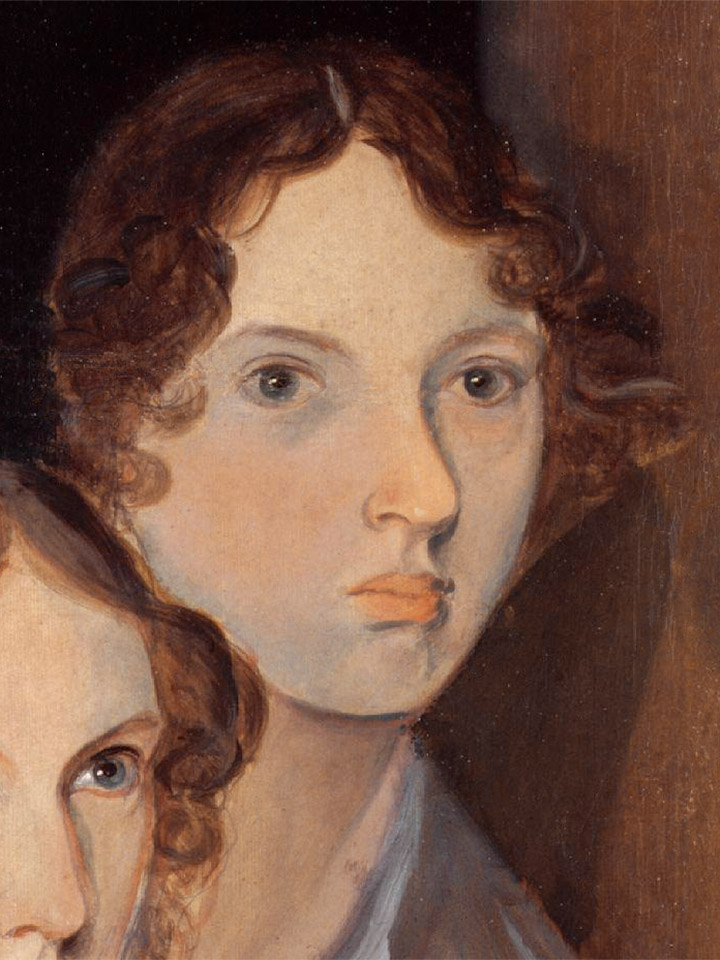Emily Brontë
Birth Name: Emily Jane Brontë
Pseudonym: Ellis Bell
Born: July 30, 1818 in Thorton, England
Died: December 19, 1848 in Haworth, England
Time Period: Romantic
Expertise: Governess, Novelist, Poet
Known For: Wuthering Heights

Quotes
Interesting quotes by Emily Brontë
“Any relic of the dead is precious, if they were valued living.”
“A person who has not done one half his day’s work by ten o clock, runs a chance of leaving the other half undone.”
“I cannot express it: but surely you and everybody have a notion that there is, or should be, an existence of yours beyond you.”
“Terror made me cruel.”
ADVERTISEMENT
Bio
A brief biography of Emily Brontë
Emily Jane Brontë was born on July 30, 1818 in Thorton, England. She was a poet and novelist. Emily is known for her acclaimed novel, Wuthering Heights, now deemed an English literary classic. Brontë published a collection of poems titled Poems by Currer, Ellis, and Acton Bell, with her two other sisters, Charlotte and Anne. The girls used masculine pseudonyms—Emily’s being Ellis Bell. Given due consideration by modern critics, Emily’s body of work was poetic brilliance.
Emily Brontë was rather reclusive and mainly associated with her siblings. She showed compassion towards animals, finding stray dogs while roaming the English terrain. Often shy, she resorted to books, where she taught herself how to speak German, in addition to practicing her piano skills. In time, Emily became a consummated pianist and upon a second trip to Brussels, it was advised that she reside there to instruct music at Heger Pensionnat, where she was a student herself in 1842. Though she experienced distress during her education, Emily left an impact on her teacher, Constantin Heger, being fascinated by her demeanor, he wrote “She should have been a man – a great navigator. Her powerful reason would have deduced new spheres of discovery from the knowledge of the old; and her strong imperious will would never have been daunted by opposition or difficulty, never have given way but with life. She had a head for logic, and a capability of argument unusual in a man and rarer indeed in a woman... impairing this gift was her stubborn tenacity of will which rendered her obtuse to all reasoning where her own wishes, or her own sense of right, was concerned.”
At some point in the fall of 1845, Emily’s sister, Charlotte, found her poems and strongly contended that they should be published. As a private individual, Emily was livid with her sister for prying. However, at the admission of her other sister, Anne, who would also clandestinely write, they would share their hidden passion while ostracizing Charlotte. The girls became comfortable with each other and during this time, Emily created one of her most well-known poems, No Coward Soul is Mine—believed to be in retaliation to her sister, Charlotte for the invasion of her sacred notebooks.
Emily’s brother, Branwell Brontë, died in 1848. During his funeral it is believed Emily developed a bad cold. The illness became severe and turned into tuberculosis. It’s uncertain if her immune system was compromised, considering the drinking water at home was polluted by run off from a graveyard nearby. Her condition declined over time and she refused any treatment, stating she did not want “no poisoning doctor”. On the day of Emily’s death, it would be too little too late, when she would tell her sister, Charlotte, “If you will send for a doctor, I will see him now.” She died that very afternoon, at two, on December 19, 1848 in Haworth, England.
Charlotte penned a letter to a friend saying that Emily’s dog was beside her at the moment of her death, which came three months after her beloved brother’s. The housemaid believed she died of a broken heart. The carpenter who built Emily Brontë’s coffin claimed he never made such a narrow coffin for an adult. It measured only sixteen inches wide. Her illness and heartbreak had completely emaciated her. She was laid to rest at St. Michael and All Angel’s Church, in the family vault, in Haworth, England.
ADVERTISEMENT
Works by Emily Brontë

Download free Emily Brontë books. Listen to Emily Brontë audiobooks.

ADVERTISEMENT
External Links for Emily Brontë
Emily Brontë on Wikipedia
https://en.wikipedia.org/wiki/Emily_BrontëEmily Brontë on Wikisource
https://en.wikisource.org/wiki/Author:Emily_BrontëADVERTISEMENT
Other Authors

See other authors of the Romantic period

